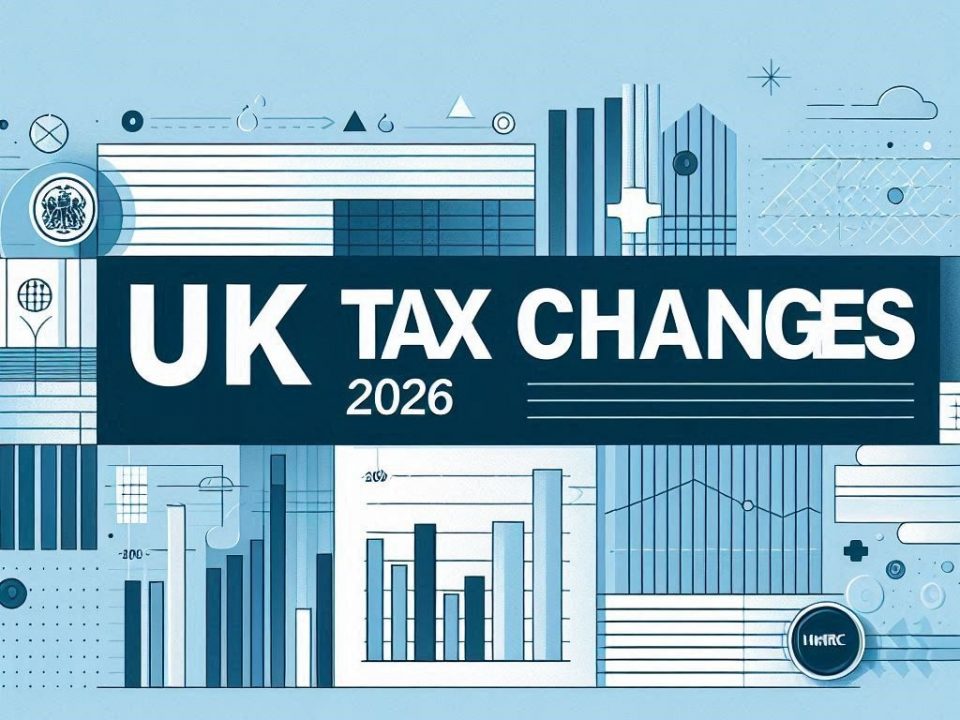HMRC Alternative Evidence for Invoices: What You Need to Know
February 16, 2025SDLT Changes from April 2025: What Property Buyers Need to Know
February 24, 2025A Landlord’s Guide to Allowable Expenses: Maximise Your Tax Savings 🏠
Being a buy-to-let landlord can be a profitable venture, but it comes with responsibilities—especially when it comes to taxes. Knowing which expenses you can claim is crucial for maximising profits and staying compliant with HMRC rules.
In this guide, we’ll break down allowable expenses, helping you save money and stay organised.
✅ What Are Allowable Expenses?
Allowable expenses are costs you can deduct from your rental income to reduce your taxable profit. These expenses must be wholly and exclusively for renting out your property. Claiming them correctly can significantly lower your tax bill, so it’s important to understand what qualifies.
📋 What Can Landlords Claim?
1. 🔧 Repairs & Maintenance
- Repairs: Fixing faults like a leaky roof or broken boiler.
- Maintenance: General upkeep such as repainting walls or clearing gutters.
- Replacing Domestic Items: If your property is furnished, you can claim the cost of replacing furniture, appliances, and kitchenware.
⚠️ Important: Improvements (e.g., installing a new kitchen or bathroom) aren’t allowable expenses but may qualify for Capital Gains Tax relief when you sell the property.
2. 🏢 Letting Agent Fees
- Costs for property management, tenant sourcing, and rent collection.
3. ⚖️ Legal & Professional Fees
- Legal fees: Drawing up tenancy agreements or handling evictions (not for property purchases).
- Accountancy fees: Tax return preparation and financial advice.
- Inventory checks: Professional inventories at tenancy start/end.
4. 🛡️ Insurance
- Landlord insurance (buildings, contents, liability).
- Rent guarantee insurance.
5. 💡 Utility Bills & Council Tax
- If you pay for utilities (gas, electricity, water) or council tax during vacant periods or if included in the rent.
6. 🏘️ Service Charges & Ground Rent
- Maintenance fees for communal areas (e.g., flats).
- Ground rent for leasehold properties.
7. 🏦 Mortgage Interest (Tax Credit)
- You can’t deduct mortgage interest as an expense, but you get a tax credit of 20% on the interest paid (Mortgage Interest Tax Relief, introduced in April 2020).
8. 📢 Advertising Costs
- Expenses for listing the property online, in newspapers, or with agencies.
9. 🚗 Travel Expenses
- Costs for property visits (e.g., inspections, maintenance, tenant meetings).
10. 🧹 Other Expenses
- Cleaning: End-of-tenancy cleaning services.
- Gardening: Outdoor maintenance.
- Security: Installing or maintaining alarms and CCTV.
🚫 What Can’t You Claim?
Not all costs are deductible. Here’s what doesn’t qualify:
❌ Capital Expenditure
- Buying the property (purchase price, stamp duty, legal fees).
- Major improvements (extensions, new kitchens, additional bathrooms).
❌ Personal Use
- Any expenses related to your own use of the property.
❌ Private Phone & Internet Bills
- Unless directly related to your rental business.
❌ Clothing
- Even if worn for property maintenance.
📂 Record-Keeping Tips
Keeping accurate records ensures smooth tax filing and compliance with HMRC. Here’s how to stay organised:
✅ Keep receipts & invoices – Document every expense, no matter how small.
✅ Use accounting software – Tools like QuickBooks, Xero, or Landlord Studio help track finances.
✅ Store records for 6 years – HMRC may request them for audits.
💡 Smart Tax-Saving Tips for Landlords
✅ Use Bookkeeping software – Simplify expense tracking with FreeAgent.
✅ Consult a Tax Advisor – If unsure, get professional advice.
✅ Plan for Tax Bills – Set aside funds throughout the year.
🔍 Final Thoughts
Understanding allowable expenses is key to running a successful rental business. By claiming everything you’re entitled to, you can reduce your tax bill and boost profits. Stay organised, keep detailed records, and keep up with HMRC rules to avoid surprises.
💬 Got questions? Drop them in the comments below! 👇



